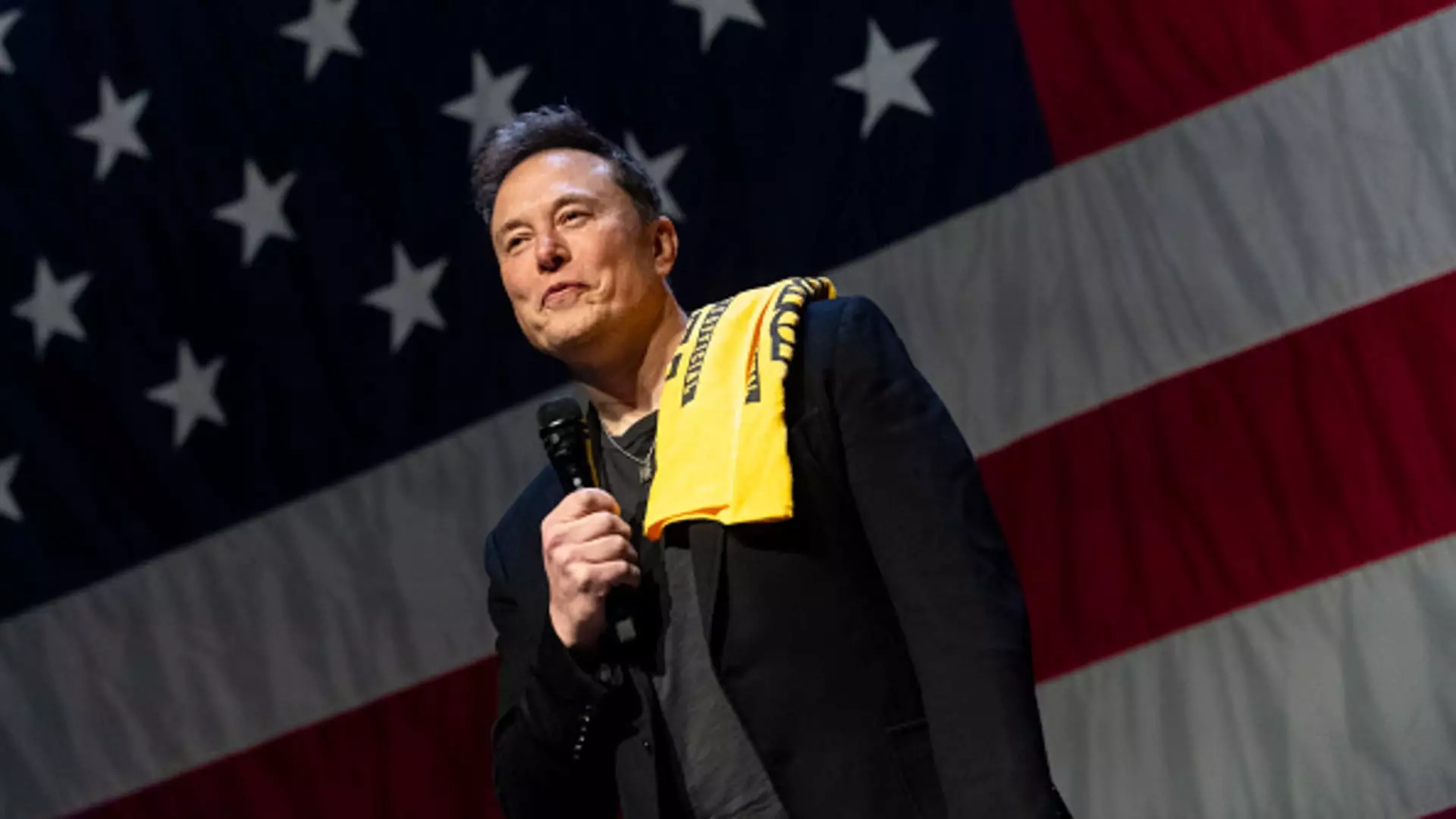In an unprecedented legal confrontation, the Philadelphia District Attorney’s office, led by Larry Krasner, has initiated a lawsuit aimed at prohibiting billionaire Elon Musk and his political action committee (PAC) from bestowing $1 million prizes to voters in key swing states. This development, emerging from a complex interplay of marketing tactics and electoral integrity concerns, has drawn significant attention as it unfolds in the legal arenas of both state and federal courts.
The crux of the lawsuit posits that Musk’s endeavor constitutes an illegal lottery aimed at influencing electoral outcomes. Krasner’s claims underline a critical fear: that the lure of monetary incentives might distort the democratic process. The court will deliberate on whether a PAC, particularly one aligned closely with federal electoral operations, qualifies as subject to state-level regulations, a debate that could set important precedents for future political fundraising and giveaway strategies.
The initial hearing took place in Pennsylvania’s federal court but was marked by swift movement from both parties. Lawyer John Summers, representing Krasner, informed the press of their intention to return the case to state court after it was transferred to federal jurisdiction. The complexities of jurisdictional law here are fascinating; the defense argues that the PAC, being a federal entity, inherently escapes state laws regarding lotteries.
Musk’s defense attorneys contended that the claims against him were fundamentally rooted in the notion of infringing upon federal election processes, thereby complicating the legal nuances of the case. Krasner’s lawsuit, officially filed in the Philadelphia Court of Common Pleas, aims to halt what it describes as an unregulated lottery that could sway voters in the upcoming presidential election between Kamala Harris and Donald Trump.
This back-and-forth raises significant questions about the interpretation of electoral laws and the extent of permissible political engagement by private citizens and organizations.
Surrounding Concerns: Safety and Ethics
Adding further intrigue to the case is the rising concern surrounding the safety of Krasner himself. Following increasingly heated anti-Semitic harassment directed at the DA from Musk’s online supporters, the lawsuit includes claims that Musk’s actions inadvertently cultivate a hostile environment aimed at Krasner. The district attorney’s request for Musk and a PAC representative to appear in person stems from these serious security concerns. This dimension of the story reflects a broader conversation about the responsibilities of public figures—especially those with a social media following as expansive as Musk’s—in shaping political discourse and safeguarding the integrity of those who challenge them.
Krasner’s suit also resonates with overarching themes concerning the ethics of political giving and the fine line between enhancing electoral engagement and undermining it through manipulative practices. The DA’s office posits that Musk’s substantial cash prizes serve more to exploit voter naivete than to foster genuine civic responsibility.
The implications of this lawsuit extend beyond the immediate legal battle. Musk’s America PAC claims to have distributed $12 million worth of prizes across the country, with four million-dollar awards issued to Pennsylvania residents—raising alarms about the potential influence these financial incentives could have on the voting behaviors in critical electoral zones. Such giveaways could shift voter demographics and preferences by creating an illusion of incentive-driven participation, effectively placing a price tag on civic engagement.
As the legal proceedings continue and public scrutiny intensifies, the stakes become higher for both Musk and Krasner. Each move could have far-reaching implications not only for Musk’s PAC but for how political action committees operate within the bounds of federal and state law. It also presents a pivotal case study in the balancing act between innovative campaign strategies and the need to maintain the sanctity of democratic processes.
As the legal tussle between the Philadelphia DA and Elon Musk unfolds, it beckons a much-needed dialogue about the ethics of political fundraising in a digital age—one where financial incentives and civic duty collide in an increasingly complex electoral landscape. The outcome of this case may set a critical standard for future electoral engagement strategies, influencing how politicians and activists alike navigate the intricate labyrinth of legal and ethical considerations in American democracy.


Leave a Reply